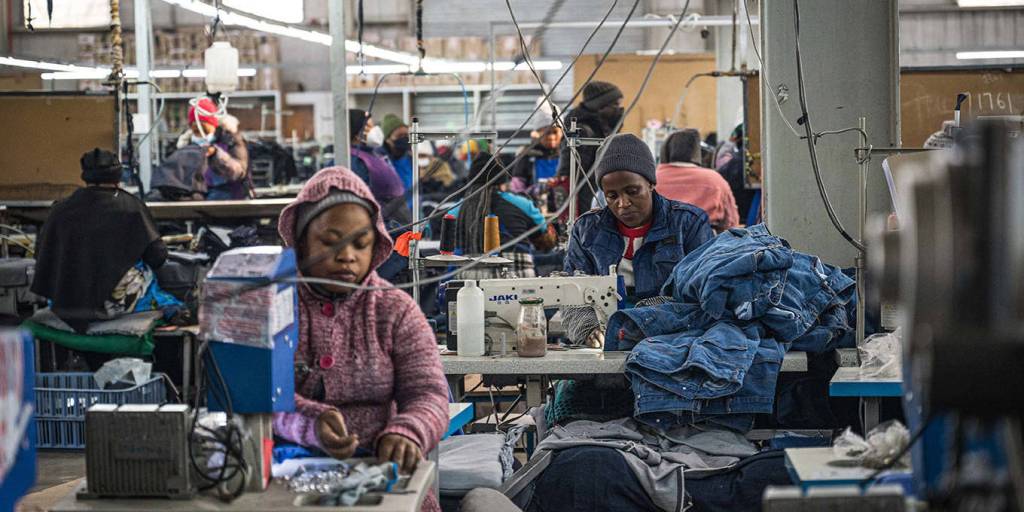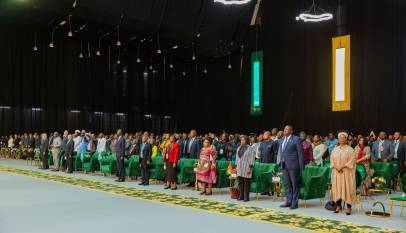OP-ED | How Should Africa Respond to Trump’s Tariffs? By Shimukunku Manchishi
Trump’s tariffs threaten African exports and stability, underscoring the need for collective bargaining with the US and stronger ties with emerging powers.

US President Donald Trump’s misnamed “reciprocal” tariffs represent a major shift in American trade policy, replacing the multilateral approach that has guided US strategy for decades with a bilateral model focused on country-by-country negotiations.
Although these tariffs were presented as being directly proportional to the barriers other countries allegedly impose on US goods, they were in fact based on an unusual – and widely criticized – formula. The administration calculated each rate by taking the US trade deficit with a given country, dividing it by the value of that country’s exports to the United States, and halving the result. This produced a wide range of tariffs, from 10% to 50%, many of which have been repeatedly revised – and often for reasons having nothing to do with bilateral trade balances.
The administration’s approach has hit poor and least-developed countries particularly hard. Consider Lesotho. For decades, successive US administrations helped the country develop an export-oriented apparel industry through the African Growth and Opportunity Act, creating roughly 40,000 jobs. In 2024, Lesotho exported goods worth $237 million to the US, yet imported only about $2.8 million in American goods, largely due to its landlocked status and reliance on the Southern African Customs Union.
Under the Trump administration’s formula, this trade imbalance translated into one of the steepest tariffs imposed on any country. Although the initial 50% rate was later reduced to 15%, it still poses a serious threat to Lesotho’s economy.
Trump’s tariff regime is not just punitive and counterproductive. It also undermines US commitments under World Trade Organization rules and strikes at the heart of the multilateral trade system.
Africa finds itself in the crosshairs, with economies across the continent facing grave consequences. South Africa’s automotive industry faces sharp export declines and potential job losses, while agricultural exporters such as Côte d’Ivoire, Ghana, and Kenya are highly vulnerable to tariff-driven trade disruptions. In Mauritius and Madagascar, textile producers could see their industries collapse.
The US delayed the full implementation of Trump’s tariffs until August 7, allowing time for bilateral trade negotiations, which implied further damage to the multilateral order. Days after Trump’s reciprocal tariffs were paused, 75 countries reportedly approached the administration to strike their own trade deals, signaling a growing global shift toward ad-hoc bilateralism.
The “economic prosperity deal” between the US and the United Kingdom is a prime example. This limited tariff-quota deal fails to liberalize “substantially all” trade – a key requirement under Article XXIV of the General Agreement on Tariffs and Trade (GATT). Moreover, it violates the “most-favored nation” principle, a cornerstone of the multilateral system.
Other countries – including Vietnam, the Philippines, and Japan – have also reached bilateral deals with the US, agreeing to adjusted tariffs of 20%, 19%, and 15%, respectively. Notably, these agreements include additional provisions, from penalties on “transshipped” goods to industry-specific investment commitments.
So far, no African country has secured a trade deal with the Trump administration. Zimbabwe was the first to respond to Trump’s tariffs, immediately (and prematurely) suspending all tariffs on US imports in a show of goodwill. Meanwhile, major economies such as South Africa and Kenya are still trying to secure favorable terms amid mounting domestic pressures.
Regardless of the outcome of these negotiations, the US has clearly decided to pursue a transactional trade strategy, offering selective tariff relief in exchange for sector-specific concessions or access to strategic resources like critical minerals. This approach reduces complex trade relationships to blunt, take-it-or-leave-it bargaining, leaving developing countries with little room to maneuver.
The result is a fragmented global trading system that favors countries with greater economic or strategic clout. African countries are in a particularly difficult position: without the protection of multilateral institutions like the WTO, they could be pressured into accepting exploitative agreements that target strategically important sectors such as raw materials – areas where Africa holds significant leverage but often fails to use it effectively.
To prevent this, African countries must form a united front. By bargaining collectively on sector-specific deals, governments could leverage their strategic assets to protect the continent’s economic interests and push more effectively for tariff exemptions on exports like textiles, coffee, and minerals, especially cobalt and lithium.
At the same time, African countries must diversify their trade relationships by opening new export markets and strengthening South-South cooperation, especially with emerging powers like China. Long-term resilience will also require increased investment in industrial capacity and deeper regional integration through the African Continental Free Trade Area (AfCFTA).
In today’s rapidly shifting economic landscape, Africa cannot afford to remain a passive observer. Through coordinated strategic action and assertive diplomacy, its governments can foster regional stability and help shape a fairer, more equitable global trading order.
Shimukunku Manchishi is Senior Policy Officer at the African Future Policies Hub. This Op-Ed article was originally published on the Africa Report; the views expressed in it are those of the authors and do not necessarily reflect African Newspage’s editorial policy.












